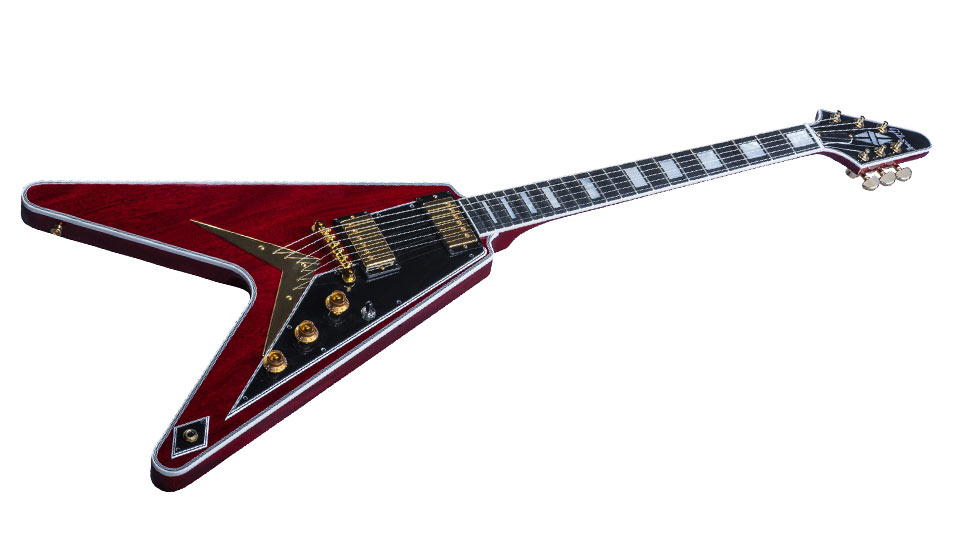Music fans use "extreme metal" as an umbrella term for the harsher and more underground forms of metal: speed, thrash, death, black and doom. These subgenres use more distortion and more aggression than other forms, with tempos that vary from incredibly fast to sludgingly slow.
The output of popular bands like Slayer, Venom, and Metallica in the early 1980s paved the way for more abrasive sounds in metal; these artists set themselves apart from more traditional heavy-metal acts of the time, Judas Priest and Iron Maiden, by challenging the perceptions of the genre. Screaming replaced melodic vocals and guitars began to sound more like weapons of mass destruction. It was an exciting – and very loud – time in music history.
So… how do you get a guitar to sound like a raging beast rising from the abyss?
- Tune it Low

Get ready to twiddle these down a bit.
Scrap the standard E for something lower. Low tunings create less tension on the strings, so heavy gauge string sets are crucial to prevent strings from flopping and going out of tune. Metallica and Slayer started out in standard E tuning but later explored lower tunings in Eb and Drop D (same as standard E tuning, except for the bottom string tuned a whole step down to D). Doom and death metal tend to use the lowest tunings, like B or A. Also, a good rule of thumb is to increase your string gauge one step for every whole step you tune down. So if you normally play 10s in E Standard, be prepared to go to 13s for B Standard, and have the guitar set up accordingly.
- Palm Muting

Mute the strings with your strumming hand to get that percussive energy in your rhythm parts.
Death and thrash metal rely heavily on fast, percussive rhythm parts to propel the songs and crank the feeling of energy.in the rhythm parts. The key to getting that machine-gun like crunch is a technique called palm muting: Rest the side of your hand or your palm on the strings, then strum. The goal here is rhythmic accuracy, so you don't need to whack your guitar to death to get it right; a light touch can go a long away. Extreme metal also favors a "scooped" EQ – crank the highs and low freqencies on your amplifier and drop the mids to give those palm mutes their distinctive flavor.
- Tremolo Picking

Keep the pick close to the strings and your arm above your wrist loose for the most effective and comfortable tremolo picking.
Extreme metal – particularly black and death metal – frequently utilizes tremolo picking, which incorporates continuous up-and-down strokes on a single string played at high speed. Economy of movement is key! The shorter the distance your pick moves away from the string, the greater accuracy and control you'll have.
Down-tuning, palm muting, and tremolo picking are easy to learn, and players can adapt them to any skill level. These techniques are the foundation of thrash, death, black and doom metal – extreme metal wouldn't be extreme without them.
Leila Abdul-Rauf is a multi-instrumentalist and composer based in Oakland, CA. Leila is guitarist and vocalist for metal bands Vastum, Hammers of Misfortune, and ethereal post-punk band Terebellum. She also composes and produces ambient music under her own name, with electronic trio Ionophore and synth-folk duo Fyrhtu. Leila has toured internationally and is a private guitar and voice teacher in her spare time.
Photos courtesy of Katrin Auch Photography. Used with permission.
Rocksmith+ can help you learn about gear, technique, history, and much more. Join us for the next step on your musical journey.









